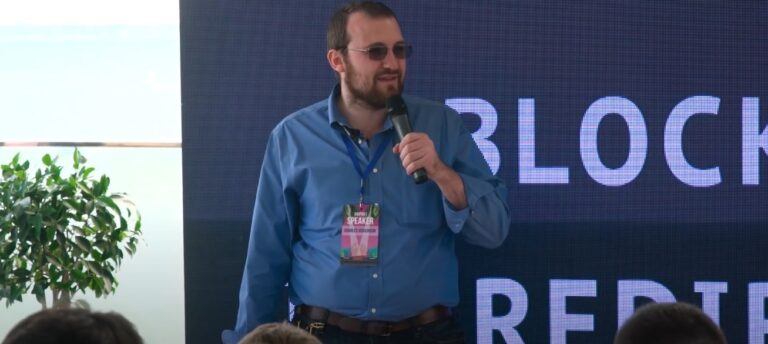World
The Pentagon will install rooftop solar panels as Biden pushes clean energy in federal buildings

WASHINGTON (AP) — The Defense Department will install solar panels on the Pentagon, part of the Biden administration’s plan to promote clean energy and “reestablish the federal government as a sustainability leader.”
The Pentagon is one of 31 government sites that are receiving $104 million in Energy Department grants that are expected to double the amount of carbon-free electricity at federal facilities and create 27 megawatts of clean-energy capacity while leveraging more than $361 million in private investment, the Energy Department said.
Energy Secretary Jennifer Granholm, Deputy Defense Secretary Kathleen Hicks and Brenda Mallory, chair of the White House Council on Environmental Quality, announced the projects Wednesday at the Pentagon.
The solar panels are among several improvements set for the Pentagon, which also will install a heat pump system and solar thermal panels to reduce reliance on natural gas and fuel oil combustion systems
Brendan Owens, assistant secretary of Defense for energy, installations and environment, said the projects will improve energy resilience and reliability at the Pentagon and other military sites in the U.S. and Germany. He called energy use “central to everything we do.’’
Solar panels will provide “an uninterrupted power source’’ at the Pentagon in case of a cyberattack or other outage to the bulk grid, as well as reduce strain on the building’s power load, Owens said in an interview.
Because of the Pentagon’s “relatively congested air space” outside Washington, solar panels were the best option for clean energy, he said. The building is a nationally registered historic landmark, so officials will work with local officials to ensure the panels meet all requirements.
The grant program also includes energy upgrades at Naval bases in Georgia and Washington state, as well as the Naval Support Activity Mid-South in Tennessee.
In addition to the Defense Department, projects also include installation of thermally efficient windows at the Energy Department headquarters in Washington, as well as efficiency upgrades to the Commerce and Transportation departments.
Other agencies selected for projects include the Interior and Veterans Affairs departments, as well as the General Services Administration, Office of Personnel Management and Social Security Administration.
The program also will make the Mauna Loa Observatory in Hawaii a net-zero emissions facility. The site run by the National Oceanic and Atmospheric Administration ceased all measurements and radio transmissions in late November after a lava eruption of the Mauna Loa volcano cut the power line and buried over a mile of the access road to the observatory. Since November, access to the site has been limited to costly weekly visits by helicopter to collect limited atmospheric data, officials said.
The grant program will install solar panels and batteries at the observatory to make the facility a net-zero site for carbon emissions, bring atmospheric science instrumentation back online and significantly improve the site’s climate resiliency, officials said.
“As the observatory is considered the definitive source for documenting the increased atmospheric burden of fossil fuel emissions, this project has the unique ability to eliminate 100% of the combustion of fossil-fueled electrical power to make those critical measurements,’’ the Energy Department said.
The funding announced Wednesday is the first of three disbursements expected from the Assisting Federal Facilities with Energy Conservation Technologies or AFFECT program included in the 2021 infrastructure law. A total of $250 million was awarded to the program, which was established in 1992 to help agencies cut energy consumption.
The projects align with Biden’s 2021 executive order that called for a 65% reduction in greenhouse gas emissions from federal operations by 2030 and a net-zero building portfolio by 2045.
The projects also include installation of solar panels at the U.S. Army Garrison in Wiesbaden, Germany, as well as energy and water efficiency improvements and solar panels at the Maui Air Traffic Control Tower in Kahului, Hawaii.

World
Live Updates: ‘Technical Failure’ Caused Helicopter Crash That Killed Iran’s President, State News Agency Reports
The deaths of Iran’s president, Ebrahim Raisi, and foreign minister left the country without two of its most influential figures at a moment of regional and domestic tumult. Funeral services will be held in three cities from Tuesday through Thursday, the state media said.
World
Denmark turns to Kosovo to alleviate its overcrowded prison system in $217 million deal

Kosovo’s Cabinet renewed efforts with a new draft law on renting a prison in the south of the country to Denmark to help it cope with its overpopulated prison system, an official said Monday.
The first draft of the law failed to pass at the parliament last week. But on Sunday, the Cabinet approved a draft law on 300 cells at the prison in Gjilan, 50 kilometers (30 miles) south of the capital Pristina, to be rented to Denmark, based on a a 10-year agreement that the two governments signed in April and May 2022, government spokesman Perparim Kryeziu said.
FORMER KOSOVO INFRASTRUCTURE MINISTER GETS 44 MONTHS FOR OVERSPENDING ON ROAD PROJECT
“The Cabinet approved it (the draft law) again yesterday (Sunday) so that it passes on to the Assembly (the parliament) to be voted on again,” he said.
An official in Kosovo says the Cabinet has renewed efforts with a new draft law on renting a prison in the south of the country to Denmark to help it cope with its overpopulated prison system. (Photo by Ferdi Limani/Getty Images)
Last week, the draft law got 75 votes, not reaching at least 80, or two-thirds of the 120-seat parliament as required to pass.
Kosovo will be paid 200 million euros ($217 million) that will be spent on the country’s correctional institutions and renewable energy projects.
According to the plan, Denmark won’t be able to send inmates convicted of terrorism or war crimes, or mentally ill prisoners. A Danish warden will run the 300-cell facility, accompanied by an Albanian one and other local staff.
Kosovo’s prison system has a capacity of up to 2,800. It wasn’t immediately possible to find out the current number of vacancies.
Neighboring Albania has agreed to hold thousands of asylum-seekers for Italy.
World
'The new Ursula': How von der Leyen learned to stop worrying and love Meloni
By embracing those who advocate for the erosion of democracy, VDL now aligns with figures who cloak themselves as quintessential Europeanists, ready to steer Europe through its future policy challenges. What could possibly go wrong, Giorgios Samaras writes.
-

 News1 week ago
News1 week agoSkeletal remains found almost 40 years ago identified as woman who disappeared in 1968
-

 Movie Reviews1 week ago
Movie Reviews1 week ago“Kingdom of the Planet of the Apes”: Disney's New Kingdom is Far From Magical (Movie Review)
-

 World1 week ago
World1 week agoIndia Lok Sabha election 2024 Phase 4: Who votes and what’s at stake?
-

 World1 week ago
World1 week agoUkraine’s military chief admits ‘difficult situation’ in Kharkiv region
-

 Politics1 week ago
Politics1 week agoTales from the trail: The blue states Trump eyes to turn red in November
-

 World1 week ago
World1 week agoBorrell: Spain, Ireland and others could recognise Palestine on 21 May
-

 World1 week ago
World1 week agoCatalans vote in crucial regional election for the separatist movement
-

 Politics1 week ago
Politics1 week agoNorth Dakota gov, former presidential candidate Doug Burgum front and center at Trump New Jersey rally

















